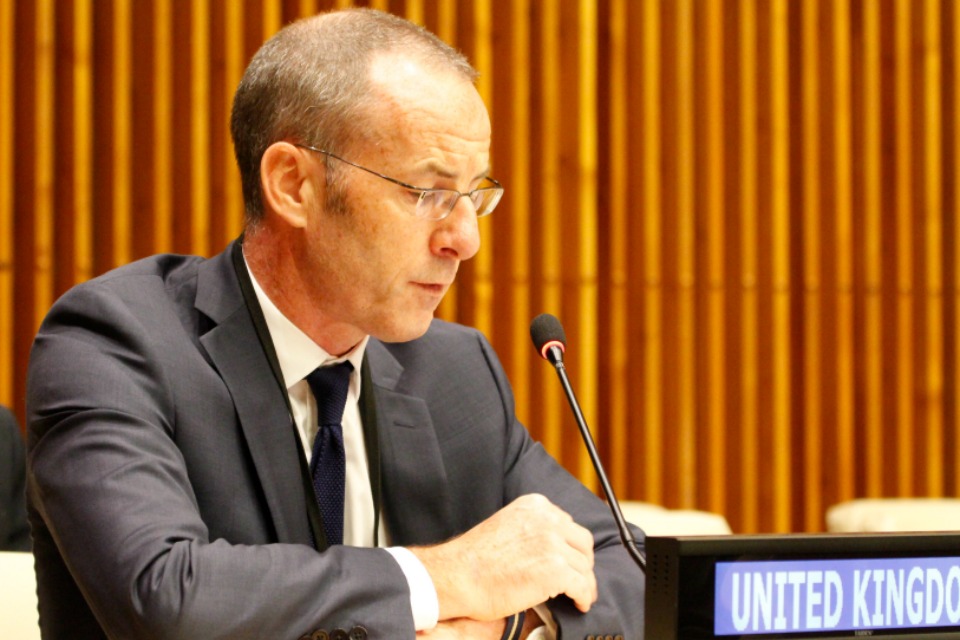"The United Kingdom remains deeply concerned at the persecution of the Crimea Tatar minority."
Statement by Ambassador Martin Shearman, of the UK Mission to the United Nations, on the Third Committee resolutions on Crimea

Thank you Madam Chair,
The United Kingdom strongly supports and is a co-sponsor of this resolution on the “Situation of Human Rights in the Autonomous Republic of Crimea and the City of Sevastopol.”
We share the serious concerns that it raises. The deterioration in human rights on the Crimean Peninsula since the start of the Russian Federation’s illegal annexation has been well documented by the Office of the UN High Commissioner for Human Rights (OHCHR). The OHCHR has detailed the arrests, ill-treatment, torture and intimidation perpetrated against political opponents and minorities, as well as the denial of basic human rights to those who do not accept the forced imposition of Russian legislation and citizenship on the Peninsula.
The United Kingdom remains deeply concerned at the persecution of the Crimea Tatar minority, including the banning of the Tatar Mejlis and at the use of anti-extremist legislation to silence dissenting views.
It is deplorable that the de facto authorities continue to deny access to all international monitoring organisations, thereby preventing an independent assessment of the human rights situation in Crimea. The Office of the High Commissioner for Human Rights, Human Rights Monitoring Mission for Ukraine, has been operating in the Ukraine for two years, yet throughout that period it has been systematically refused access to Crimea. Restoring access to the Crimean peninsula for international human rights monitoring bodies is therefore the primary, and necessary, goal for this draft resolution.
We urge all delegations to give the resolution their support.
I thank you, Madam Chair.